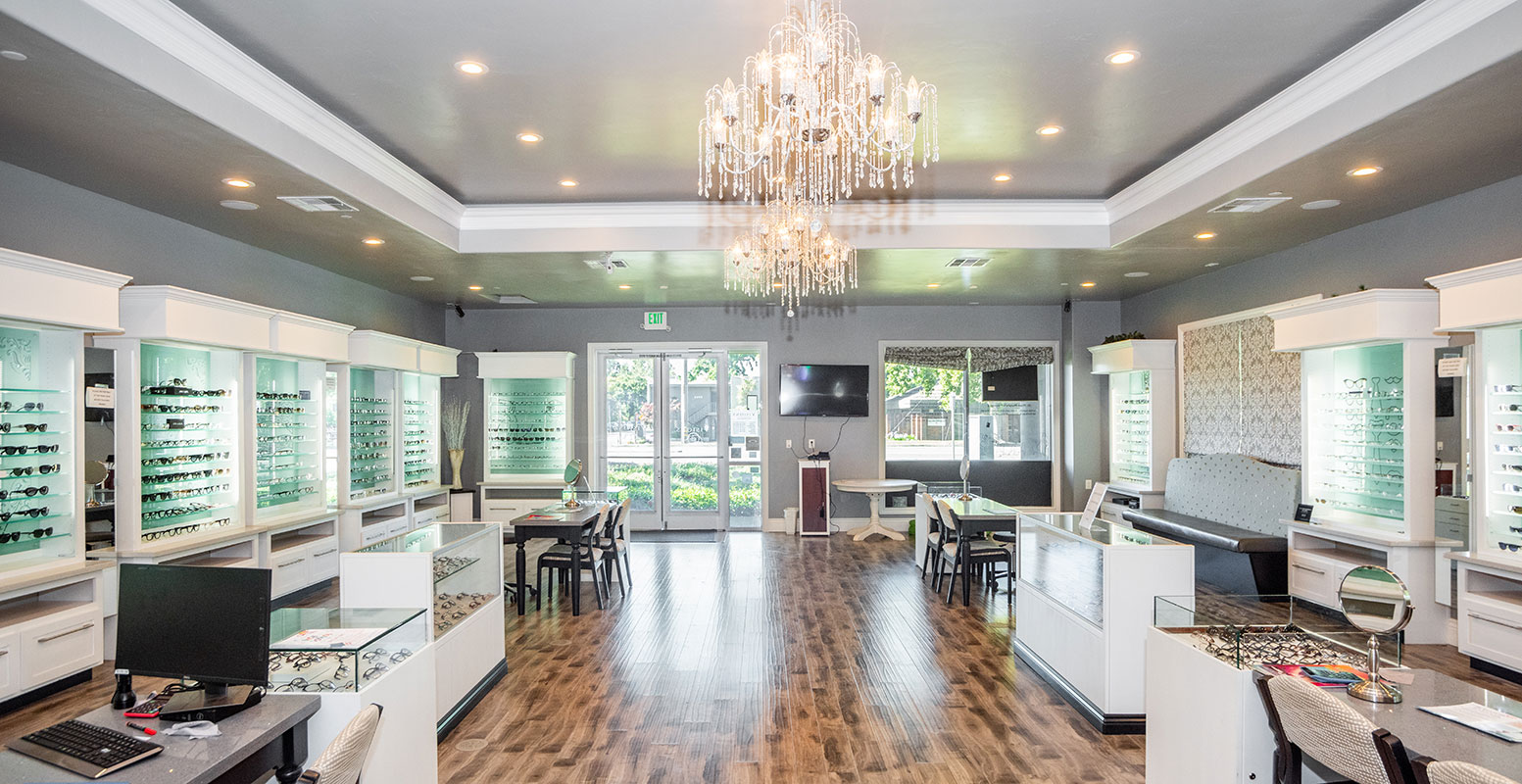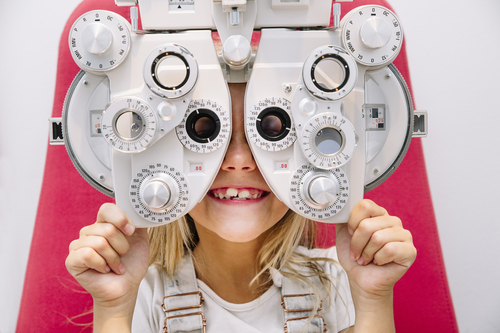The Importance of Regular Eye Examinations and How an Optometrist Can Help Maintain Your Vision
In today's hectic world, protecting our vision usually takes a rear seat to more immediate concerns, yet regular eye examinations are an essential element of keeping overall health and wellness. As we discover the nuanced obligations of optometrists, one might wonder how these understandings convert into tangible advantages for long-lasting eye health and wellness.
Advantages of Regular Eye Tests

One of the primary advantages of constant eye exams is the capacity to monitor changes in vision that may not be promptly noticeable. Visual acuity can slowly decrease, and without routine analyses, such adjustments might go unnoticed up until they substantially influence day-to-day activities. Eye tests can disclose systemic wellness problems. Conditions such as diabetic issues, hypertension, and high cholesterol commonly materialize with ocular signs, allowing optometrists to recommend more clinical assessment.
Furthermore, normal eye examinations contribute to improved top quality of life. By guaranteeing ideal vision, individuals are much better outfitted to carry out day-to-day tasks, boosting efficiency and decreasing the danger of crashes. On the whole, the aggressive technique of regular eye tests cultivates not just eye health but likewise holistic health.
Early Discovery of Eye Conditions
Along with the benefits of preserving aesthetic acuity and total health and wellness, eye exams are crucial in the early discovery of various eye conditions. Normal eye assessments permit the recognition of conditions that may absent symptoms in their preliminary phases, such as glaucoma, diabetic retinopathy, and age-related macular degeneration. Early detection is essential due to the fact that it allows prompt treatment, which can stop development and decrease the threat of vision loss.

Age-related macular degeneration, a leading root cause of blindness amongst older grownups, can likewise be identified early via regular eye examinations. By identifying drusen down payments or adjustments in the macula, optometrists can keep track of and manage the problem proactively. Inevitably, constant eye examinations are vital for guarding vision and boosting high quality of life through very early discovery and intervention.
Duty of Optometrists in Vision Care
Eye doctors play a critical duty in vision treatment, acting as the key health care professionals committed to the assessment, diagnosis, and monitoring of ocular wellness. Their proficiency is critical in preserving optimal aesthetic function and general eye health, which is crucial for a person's quality of life (Optometrist Chino). Eye doctors are thoroughly trained to recognize a variety of eye conditions, from refractive mistakes such as myopia and hyperopia to a lot more complex disorders like glaucoma and macular deterioration
With detailed eye assessments, optometrists analyze both visual skill and the wellness of the eyes, allowing very early detection and treatment for different eye diseases. useful source This preventative method can dramatically decrease the danger of vision loss and various other problems. Optometrists are educated concerning prescribing corrective lenses and suggesting lifestyle or nutritional adjustments to support aesthetic wellness.
Along with their medical obligations, eye doctors usually provide client education, equipping individuals to take aggressive action in keeping their eye health and wellness. They work together with other healthcare carriers when essential, ensuring a multidisciplinary approach to managing systemic problems that might impact vision, such as diabetic issues and hypertension. Thus, optometrists are essential allies in protecting and enhancing aesthetic wellness throughout an individual's life.
Technologies Utilized in Eye Exams
Advancements in technology have actually substantially improved the ability of eye doctors to supply detailed eye care. Modern eye examinations use a variety of sophisticated devices to detect and monitor eye wellness precisely. Digital retinal imaging, as an example, permits optometrists to capture thorough pictures of the retina, providing critical understandings into problems such as diabetic retinopathy and macular deterioration. This non-invasive method offers a thorough view of the retina, facilitating very early detection and treatment.
Optical Coherence Tomography (OCT) is an additional advanced modern technology used in eye tests. OCT provides high-resolution cross-sectional pictures of the retina, enabling accurate analysis of its layers. This is particularly you could try here useful in diagnosing glaucoma and retinal conditions, where subtle modifications can have significant ramifications for vision.
Moreover, automated refractors have structured the procedure of determining restorative lens prescriptions. These tools utilize advanced algorithms to determine refractive mistakes promptly and accurately, guaranteeing ideal vision improvement.
Additionally, visual field testing innovation analyzes field of vision, important for identifying glaucoma. This test maps the patient's visual field to determine any type of shortages or blind places that can show underlying issues.
With these technologies, eye doctors can offer an extensive assessment of eye health and wellness, guaranteeing prompt and efficient treatment.
Preserving Vision Wellness in your home
Conservation of vision health starts with consistent treatment and attention to everyday habits that sustain eye well-being. Make sure adequate lights while reading or functioning, as dark problems can stress the eyes.
A healthy diet regimen rich in nutrients such as vitamins A, Omega-3, c, and e fatty acids is vital for eye wellness (Opticore Optometry). Foods such as leafy greens, fish, nuts, and carrots can supply these essential nutrients. Staying hydrated is just as important, as it index stops completely dry eyes
Regular exercise can improve blood circulation, contributing positively to eye health. Wearing sunglasses with UV security shields your eyes from damaging ultraviolet rays, lowering the threat of cataracts and various other eye conditions.
Final Thought
Regular eye tests are vital for preserving vision and advertising eye health, permitting for the early discovery of conditions such as glaucoma and diabetic person retinopathy. By prioritizing normal eye evaluations, individuals can better secure their vision and address potential systemic wellness problems effectively.
In today's hectic globe, securing our vision usually takes a rear seat to even more immediate problems, yet normal eye tests are an important part of preserving overall health and wellness.In addition to the benefits of preserving aesthetic acuity and general wellness, eye exams are critical in the very early detection of different eye problems - Eye Doctor.With comprehensive eye evaluations, eye doctors assess both visual acuity and the health and wellness of the eyes, making it possible for early detection and intervention for various ocular illness. Putting on sunglasses with UV protection shields your eyes from damaging ultraviolet rays, lowering the threat of cataracts and other eye conditions.Regular eye examinations are necessary for maintaining vision and advertising eye health, allowing for the early detection of conditions such as glaucoma and diabetic retinopathy